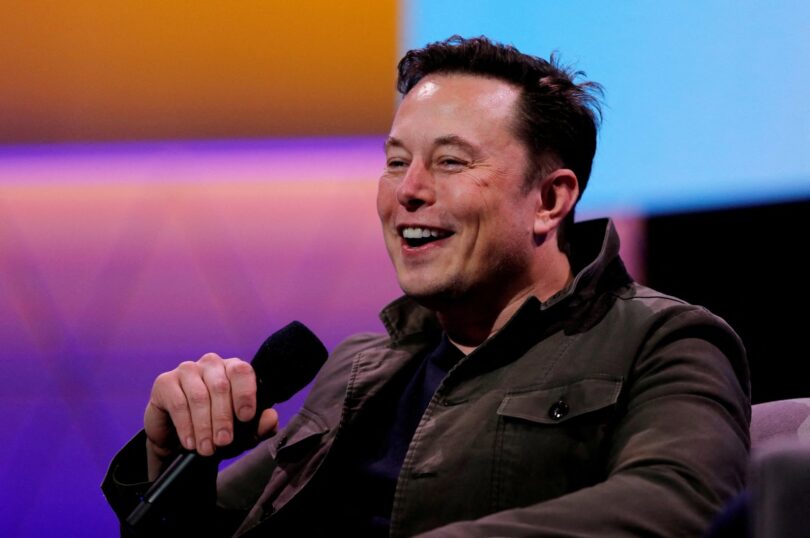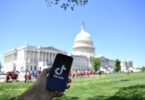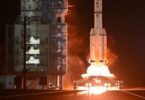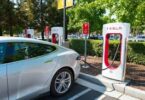BEIJING (Agencies) : Elon Musk Monday claimed that a worldwide popular chatbot has a liberal bias he plans to counter with his own AI creation, as billionaire Twitter owner again sounded warning bells on the dangers of artificial intelligence to humanity.
He criticized Microsoft-backed OpenAI, the firm behind chatbot sensation ChatGPT, for “training the AI to lie.” He said OpenAI has now become a “closed source,” “for-profit” organization “closely allied with Microsoft.”
He also accused Larry Page, co-founder of Google, of not taking AI safety seriously.
“I’m going to start something which I call ‘TruthGPT,’ or a maximum truth-seeking AI that tries to understand the nature of the universe,” Musk said in an interview with Fox News Channel’s Tucker Carlson aired on Monday.
He said TruthGPT “might be the best path to safety,” that would be “unlikely to annihilate humans.”
“It’s simply starting late. But I will try to create a third option,” Musk said.
The idea, Musk said, is that an AI that wants to understand humanity is less likely to destroy it.
Musk said he’s worried that ChatGPT “is being trained to be politically correct.”
In the first two-part interview with Carlson, Musk also advocated for regulating artificial intelligence, saying he’s a “big fan.” However, he called AI “more dangerous” than cars or rockets and said it could potentially destroy humanity.
According to a Nevada business filing, Musk has incorporated a new business called X.AI Corp. The Nevada secretary of state’s website says the company was formed on March 9 and lists Musk as its director and his longtime adviser, Jared Birchall, as secretary.
The move came even after Musk and a group of artificial intelligence experts and industry executives called for a six-month pause in developing systems more powerful than OpenAI’s newly launched GPT-4, citing potential risks to society.
Musk has expressed strong opinions about artificial intelligence for many years and dismissed other tech leaders, including Mark Zuckerberg and Bill Gates, for having what he has described as a “limited” understanding of the field.
Musk was an early investor in OpenAI – the startup behind ChatGPT – and co-chaired its board upon its 2015 founding as a nonprofit AI research lab. But Musk only lasted there for a few years, resigning from the board in early 2018 in a move that the San Francisco startup tied to Tesla’s work on building automated driving systems.
“As Tesla continues to become more focused on AI, this will eliminate a potential future conflict for Elon,” OpenAI said in a February 2018 blog post.
“I came up with the name and the concept,” Musk told Carlson, lamenting that OpenAI is now closely allied with Microsoft and is no longer a nonprofit.
Musk elaborated on his departure in 2019, saying it was also related to his need to focus on engineering problems at Tesla and some differences of opinion with OpenAI’s leaders. It was “just better to part ways on good terms,” he said.
“Tesla was competing for some of the same people as OpenAI & I didn’t agree with some of what OpenAI team wanted to do,” Musk tweeted, without specifying.
But there have been questions surrounding the quality of Tesla’s AI systems. U.S. safety regulators last month announced an investigation into a fatal crash involving a Tesla suspected of using an automated driving system when it ran into a parked firetruck in California.
The firetruck probe is part of a more extensive investigation by the agency into multiple instances of Teslas using the automaker’s Autopilot system crashing into parked emergency vehicles that are tending to other crashes. NHTSA has become more aggressive in pursuing safety problems with Teslas in the past year, announcing multiple recalls and investigations.
In the year after Musk resigned from the board, OpenAI was still far away from working on ChatGPT but publicly unveiled the first generation of its GPT system, on which ChatGPT was founded, and began a significant shift to incorporate itself as a for-profit business.
By 2020, Musk tweeted that “OpenAI should be more open,” while noting that he had “no control & only minimal insight.”
At times, he has been complimentary. For example, in the days after the Nov. 30 release of ChatGPT, Musk tweeted to OpenAI CEO Sam Altman that it was “scary good” and complained that news media wasn’t widely covering it because “ChatGPT is not a far-left cause.”
Since then, however, Musk has repeatedly highlighted examples showing left-wing bias or censorship. Like other chatbots, ChatGPT has filters that prevent it from spewing out toxic or offensive answers.







